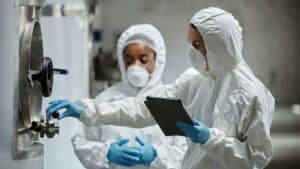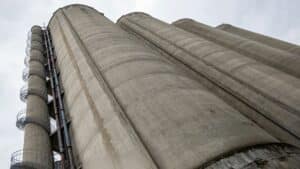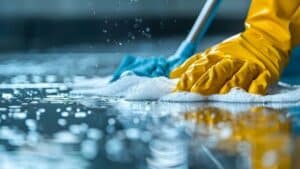A well-designed master cleaning schedule is important to maintain hygiene and operational efficiency in any manufacturing environment. This comprehensive plan involves meticulous coordination among several departments, each playing a role in ensuring the cleaning process is effective without compromising equipment or production.
Collaboration for optimal results
Designing a master cleaning schedule is a collaborative effort that extends beyond individual expertise. It requires close cooperation between multiple departments: Quality Control, Maintenance, Operations, and the cleaning team. Each department contributes unique insights that help tailor the cleaning schedule to the specific needs of the facility.
- Quality Control: The Quality Control department is instrumental in setting the standards for cleanliness. They ensure that the cleaning protocols meet food safety regulations and that the plant halts production for the necessary cleaning time. Their expertise helps balance production needs with the importance of thorough sanitation.
- Maintenance: The Maintenance team provides valuable input on the sensitivity of equipment to water and cleaning agents. They highlight areas that require special attention to prevent damage. For example, electronic components and machinery may need protective covers during cleaning to avoid water damage, which could halt production and affect equipment longevity.
- Operations: The Operations department plays a critical role in determining the timing and frequency of cleaning activities. They work closely with the cleaning team to ensure that cleaning schedules align with production schedules, minimizing downtime and disruption.
Balancing cleanliness and production
One of the primary challenges in designing a master cleaning schedule is balancing the need for thorough cleaning with the constraints of production schedules. In many cases, production demands may limit the available window for cleaning, which can impact the effectiveness of the cleaning process.
To address this, the cleaning team must work to create a schedule that maximizes the use of available time while still meeting hygiene standards. This often involves strategic planning to ensure that cleaning activities are carried out efficiently and that equipment is cleaned thoroughly without impeding production.
Ensuring equipment longevity
Proper cleaning not only ensures hygiene but also prolongs the life of equipment. Using the correct cleaning methodologies, equipment, and chemicals is crucial. Incorrect cleaning practices can lead to equipment damage, which not only affects production but can also result in costly repairs and downtime.
For instance, using high-pressure water cleaning in areas where equipment is sensitive to moisture can lead to significant damage. Therefore, the cleaning team must be aware of the equipment’s sensitivity and follow protocols that prevent such issues. By working closely with Maintenance, they can implement protective measures and use cleaning techniques that align with the equipment’s requirements.
Learning from experience
Experience plays a significant role in refining the master cleaning schedule. Over time, teams learn from previous challenges and adapt their approaches to improve efficiency and effectiveness. Initial setbacks, such as equipment damage due to improper cleaning methods, provide valuable lessons that inform future practices.
Having been in the industry for over 20 years, Advanced Cleaning services offers cleaning teams that are well-versed on the impact that their cleaning can have on equipment and production. Our teams implement strategies to avoid damage, ensure compliance with hygiene standards, and maintain operational efficiency. This proactive approach helps prevent costly disruptions and ensures that manufacturing processes remain smooth and uninterrupted.
Contact us to book our professional cleaning services for your food and beverage manufacturing plant.




